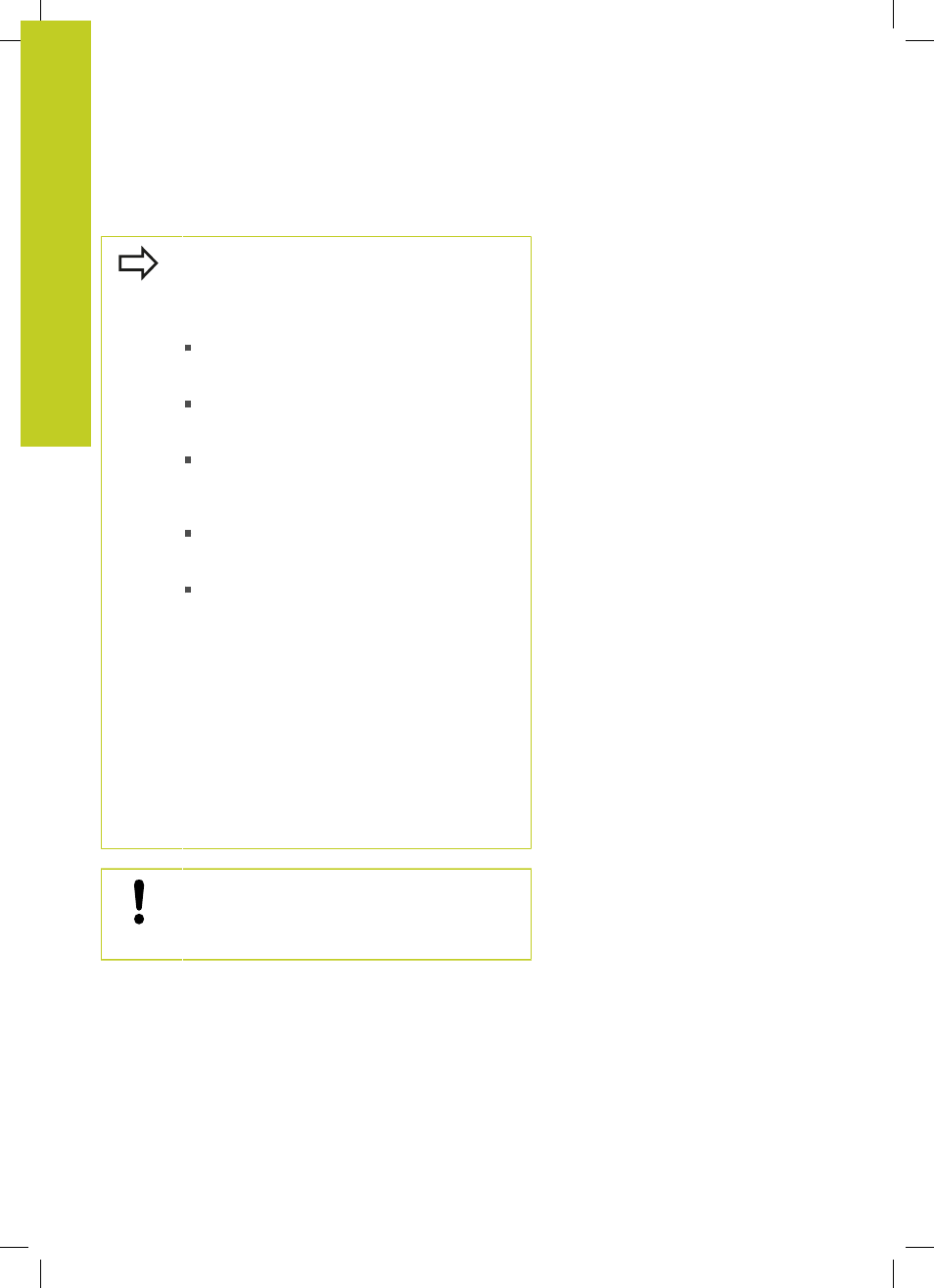Please note while programming – HEIDENHAIN TNC 620 (34056x-04) Cycle programming User Manual
Page 182

Fixed Cycles: Contour Pocket
7.6
ROUGHING (Cycle 22, DIN/ISO: G122, software option 19)
7
182
TNC 620 | User's Manual Cycle Programming | 5/2013
Please note while programming:
This cycle requires a center-cut end mill (ISO 1641) or
pilot drilling with Cycle 21.
You define the plunging behavior of Cycle 22 with
parameter Q19 and with the tool table in the
ANGLE
and
LCUTS columns:
If Q19=0 is defined, the TNC always plunges
perpendicularly, even if a plunge angle (
ANGLE) is
defined for the active tool.
If you define the
ANGLE=90°, the TNC plunges
perpendicularly. The reciprocation feed rate Q19 is
used as plunging feed rate.
If the reciprocation feed rate Q19 is defined in
Cycle 22 and
ANGLE is defined between 0.1 and
89.999 in the tool table, the TNC plunges helically
at the defined
ANGLE.
If the reciprocation feed is defined in Cycle 22 and
no
ANGLE is in the tool table, the TNC displays an
error message.
If geometrical conditions do not allow helical
plunging (slot geometry), the TNC tries a
reciprocating plunge. The reciprocation length is
calculated from
LCUTS and ANGLE (reciprocation
length =
LCUTS / tan ANGLE).
If you clear out an acute inside corner and use an
overlap factor greater than 1, some material might
be left over. Check especially the innermost path in
the test run graphic and, if necessary, change the
overlap factor slightly. This allows another distribution
of cuts, which often provides the desired results.
During fine roughing the TNC does not take a
defined wear value
DR of the coarse roughing tool
into account.
Danger of collision!
After executing an SL cycle you must program the
first traverse motion in the working plane with both
coordinate data, e.g.
L X+80 Y+0 R0 FMAX.
